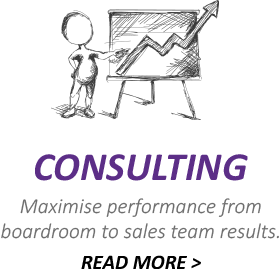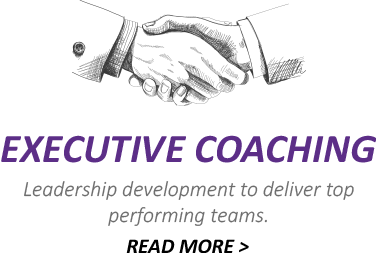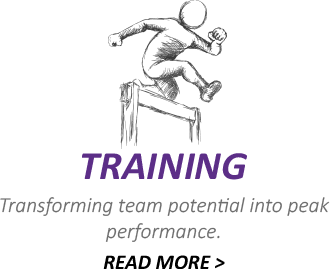5 Key qualities to look for when interviewing
When creating a world class sales team there are so many factors demanding your attention, hiring, training, coaching, pipeline forecasting, the list is endless.
Where should you focus your precious time and energy?
Recruiting the right people

Develop a first class sales recruitment process.
This cannot be underestimated as it forms the foundation of all your sales management processes. To neglect this aspect would be akin to building a house on sand rather than bedrock. Just think for a moment, if you were asked to make a decision on purchasing a piece of equipment costing over £100k. How would you approach it? No doubt you would clarify exactly what features you needed, you would do extensive market research, review the alternatives and evaluate the risks before purchasing. The irony is many managers spend a little over 2 x 60 mins with first and second interviews before hiring.
Unfortunately, many sales managers despite doing a great job of training and coaching their team often ‘wing it’ when it comes to recruiting and interviewing.
It takes a significant investment of time and real effort to find great people. However, even if you are excellent at sales training, managing and forecasting, it won’t be enough to compensate for a team of mediocre sales people. Unfortunately, many sales managers don’t invest the time to create a clear process that will enable them to predictably identify top sales performers.
They inevitably devote hours and hours each day to fire-fighting sales issues, coaching underperforming sales people and chasing their monthly and quarterly sales targets. Rather than finding top performers who will be able to consistently bring in great business results year after year.
So how can you create this outstanding sales recruitment process?
Here’s the problem, it’s different for every company. Oh great! I can hear you say…
Well here’s why, each sales person has their own strong suit or key strength. Some are great at consultative selling with questions and active listening, others are great relationship builders and effortlessly create rapport and lasting friendships. Still others produce exceptionally high activity levels and are well suited to high transactional sales situations.
All are potentially great sales people…in THEIR appropriate CONTEXT.
However they may not have the skills to succeed in a different context. So basing your hiring decision solely on their past successful performance is not enough. You need to figure out what kind of sales person would be ideal for your company.
For example I’ve done some training and coaching with a very successful sales person who was struggling at his new company. The challenge was, he came from an FMCG (fast moving consumer goods) back ground where purchase decisions were made quickly. He was frustrated by the longer gestation period found in a more complex sales environment and shortly afterwards left the company.
So here’s the good news even though it’s unique for each company, the process to follow applies to every company.
Step 1. Create a list of ideal sales qualities.
- What qualities equal sales success at your company? Then write a clear definition for each of these qualities so you can score potential candidates on a scale of 1-10.

Step 2. Work out how to evaluate individuals for each quality.
- What questions could you ask to determine their behaviours?
- What pre-interview exercises could they complete?
- What role-play exercises would reveal these qualities?
Step 3. Create a score card for the ideal sales qualities.
After each interview score the candidates out of 10 for each key quality (see above table). In this way objective comparisons can be made of the various candidates. If several members of staff are involved in the hiring process, then comparing scores can be really helpful in delivering additional perspectives. Especially when colleagues’ opinions may be emotive or easily influenced by others this approach gives some objectivity.
Moving forward there is real value in collating all this information from the score cards.
In a few months time you will be in an optimal position to review progress. Some salespeople will be producing excellent results whilst others maybe progressing more slowly. However, you can learn from this and refine your selection criteria of key qualities to further improve the process.
What key qualities do the top performers have in common? – add more weight to finding these.
Which qualities don’t seem to have a major impact on success? – downgrade these in importance.
What qualities are we missing? – Are there other areas or qualities we do need but are not searching for?
Now you have a process for recruiting that gives you control, objective results rather than subjective ‘gut feel’ when making these vital sales hiring decisions.
What could be your key qualities? I said every company is different, however here are some suggestions on the qualities I’ve found to be worth considering.
In recent years the sales environment has changed dramatically. Customers now have true buying power. Prices, distribution, technical information is all in the public domain. In addition to the abundance of comparative sales information is another factor, the lens of social media. Today every company and individual can be held accountable and reviewed publically!
In this new sales forum the qualities formally associated with top performing sales people, the aggressive, strong closers and objection handlers now seem like dinosaurs from a bygone sales era.
Today’s customers no longer accept high pressure sales tactics. However, they do respond to respectful, helpful and smart sales people who understand their needs.
What qualities do you need to look for? And how can you identify them at the interview stage?
- Coachability – the ability to be reflective, allowing them to absorb coaching and to be able to effectively apply it for improvement.
During the interview, set up a small role play that mirrors your own sales environment. For example ask them to do a follow up call on a sales lead, their goal is to do some basic discovery and set up an appointment to discuss the prospects needs further.
After the exercise ask them ‘How do you think you did?’ – Their response is your first insight as to how coachable they are. Do they reflect or analyse their performance? I’m looking for specific points they felt they did well and what areas they could have improved. Someone who is highly coachable will be able to reflect, self-diagnose and propose improvements to weak areas.
The next step is to see their ability to absorb and apply coaching. Some people struggle to absorb coaching either because they are poor listeners or maybe they don’t see the value of constructive feedback. Others absorb it but struggle to apply it, maybe they are less adaptable to change or improvement. You want to hire people who can both absorb and apply coaching.
Offer them one piece of positive feedback and one area of improvement. Coach them on this area, just a couple of points that your company has found successful. Ask them to do the role play again but this time incorporate the new ideas. Don’t expect them to be perfect at it. What you are looking for is their real effort to apply what they have just been shown and their attitude to making improvement via coaching.
- Inquisitiveness – Genuine personal interest in customers. The ability to understand their situation and challenges via effective questioning and active listening.
From the moment you meet them in reception, do they start by asking you questions, about your day, or reference a point from their research on the website. Do they follow up to my answers with thoughtful, intelligent, open-ended questions to learn more? If so this is a good start to the interview.
During the interview do they ask meaningful questions? Are they curious to understand our current situation, our goals and challenges? Does their train of thought reflect that they have actually listened carefully to your responses? Do they ask questions to confirm back that they have understood you correctly?
Also during the second attempt at the role play do they display a good level of questioning and listening to gain a deeper level of understanding of your needs?
- Diligence – Their level of care and attentiveness in meeting preparation, sales reporting and opportunity tracking. Their dedication to the completion of sales tasks.
Does this individual have the self-discipline required to proactively communicate with customers throughout the sales process? Are they truly customer focused?
How do they feel about using and keeping a CRM system up to date?
Do their answers suggest they consider it a necessary evil? Or as a key tool to allow them to be effective and efficient.
Pose a customer scenario involving a complaint or service level issue. Ask them for two or three alternative ways of resolving it and which one they would recommend?
What do they think are the most important metrics to measure sales performance?
How do they manage and track their sales opportunities from lead to order?
- Proactivity – An inner drive and sense of daily urgency to pursue the company mission with real energy.
This drive seems to be an innate quality of top performers. They need and value themselves based on achieving results.
Ask them, if they started tomorrow how would they set their sales priorities?
What would their typical day, week or month look like? How would that be organised?
Do their answers show a structured way of working? One that focuses on achieving predetermined key sales objectives or alternatively do they focus on whatever is the most compelling and urgent issue that day.
How would they plan to achieve their annual sales target?
Look to see if they are aware of the key sales processes. For example:
Would they engage in Territory Management to qualify their most valuable customers? Identifying A, B & C status to plan their call frequency proportionately.
Do they mention Account Management for larger key clients, the creation of organisational charts for each one to highlight the key individuals they would target to protect and develop the account revenue.
What sales activities and events have they found to be most effective?
I’m looking for some strategy and preparation versus a ‘fly by the seat of my pants’ mind-set. Do they plan ahead and create a 12 month Activity Plan with slots and dates booked for key activities and events with prospects and key clients.
- Previous achievement – Do they have a track-record of high achievement and top performance in their lives? E.g. Career, Academic, Sporting, Military, sales etc.
This is relatively easy to evaluate if they come from a medium to large sales force (50-100 sales people). You can ask about where they ranked, what metrics were used for the ranking, their overall results against target for the last three years etc.
It’s more challenging if they come from a smaller organisation or if they don’t have a sales background at all. In this case I’d look for excellent performance in other areas of their lives. What examination results did they achieve? Were they involved in captaining a sports team to a championship win? Were they involved in leading an extracurricular organisation? Basically, what separated them in terms of achievement from their peers?
Individuals who have performed at the top percentile level, are likely to bring that same drive, competitiveness and passion to their sales role.
So select the key qualities that make people successful in your company. Create and implement a first class sales recruitment process and you will be well on your way to hiring the right people to rapidly grow your business.




